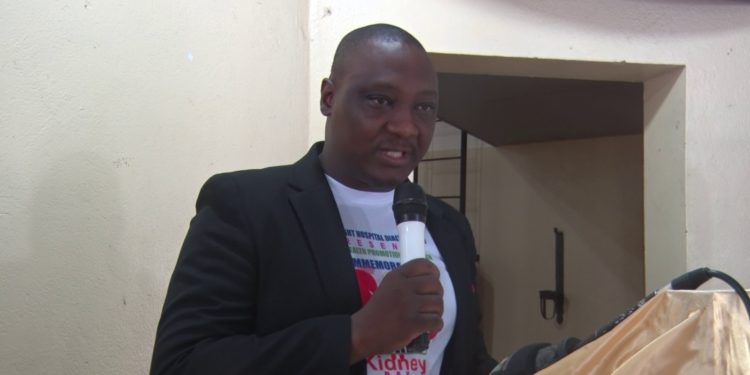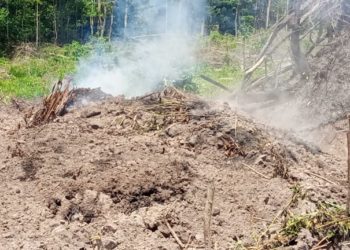By Mohamed Sahr
Experts at Sierra Leone’s main government – Connaught – have warned of a high prevalence of kidney diseases in the country, calling on people to beware of the dangers that expose them to the condition.
The experts sounded the alarm at a symposium commemorating World Kidney Day on Thursday, March 21. They were addressing students at the Milton Margai Technical University.
The event was organized by the Ministry of Health in collaboration with the Connaught Hospital Dialysis Team.
Dr. Joshua Coker, a Consultant Nephrologist at Connaught – the country’s largest referral hospital – said patients diagnosed with kidney issues at the country’s main referral hospital accounts for 2.5 percent of overall kidney cases nationwide.
He said the facility has witnessed influx of cases due to availability of a dialysis service there.
Coker spoke about the importance of educational campaigns designed to equip people on ways to protect their kidneys.
“The commonest causes of kidney disease are high blood pressure, diabetes, chronic infection, blockage and HIV,” he told the students.
He cited the frequent use of natural herbs without medical prescription as well as excessive intake of pain killer drugs as other causes of the condition.
According to the specialist, precautionary measures include regular check-ups, drinking of plenty water, eating well and avoiding salty diets.
Over a 100 participants from the general student population attended the event which took place at the Goderich Campus of the university in the west end of Freetown.
Dr. Mustapha Kabba, Deputy Chief Medical Officer for Clinical Services in the Ministry of Health, said access to safe dialysis care is an important measure for functioning kidneys.
According to him, the kidneys are the most sensitive organs in the human body, and that they play unique roles in ensuring a healthy life. He noted that preserving these crucial organs would create an impactful life. Kabba also emphasized on the fundamental preventive measures against kidney infections, including regular intake of proteins and constant hydration.
Dr Kabba said kidney failure would mean that the victim needs artificial machine to aid its functions, adding that the risk of taking a patient to dialysis remains high in terms of the cost of kidney implant and other infectious diseases.
According to Kabba, some kidney diseases are preventable, especially through avoiding unnecessary drug intake.
He said that Sierra Leone is proud to have two kidney specialists and a consultant who are working round the clock in support of the campaign for healthy kidney in the government run facility.
“The aim is to replicate the facility at a minimal cost to every Sierra Leonean,” he said.
Their goal, according to Kabba, is to commence kidney transplant and rebuild the dialysis sector in the country.
Kabba said people with signs and symptoms of kidney complications should see doctor before their kidney shuts down.
G. Varadharajan Raj, Country Manager of Indus Life Sciences Pvt Ltd, did a presentation on the importance of regular check-up for blood and fluid levels as a way of ensuring proper functioning kidneys.




















